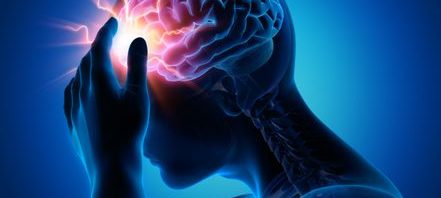Kari grew up loving to ride horses. When she was 20 years old, she was riding and ended up falling off as her horse was going over a jump. She hit her head pretty hard and had a little bit of a headache and felt a little dizzy, but luckily she was wearing a helmet. She got back on and continued riding, because that is what you do. Two weeks later over New Years, she was skiing with her friends and took a tumble. This fall hurt a lot more. She went down off the mountain and tried to lay down, but she was so nauseated and disorientated. After a couple hours, she wasn’t feeling any better, and felt like she was going to pass out, so she convinced her friend to take her into the ER. The doctors weren’t too concerned because she didn’t loss consciousness at any point and told her she had a concussion and to take it easy for a week or two.
Kari also played hockey in college, so when she got back from her trip, she jumped right back into hockey practices and games, experiencing some of the contact that goes along with that. She was also pre-med student, so she had a large homework load, and of course always tried to do her best in school. Over the next year and a half of school, she found she had difficulty concentrating in class, even when she was interested in the content. She would have a sort of permanent headache throughout the day, but thought she must just be tired from school, sports, work, and riding horses.
Then about 10 months later, during her senior year, she was training a young horse, and ended up getting bucked off. She didn’t pass out, but was having throbbing headaches and continuous nausea so she went into the ER. They found out that she had a traumatic brain injury (TBI). Now today, Kari is 26 years old, and feels like she always has a headache and suffers from frequent migraines. She had started to have more difficulties with her school work, so ended up not going to medical school. She can hardly remember what it feels like to feel normal and not feel a permanent brain fog, because she hasn’t felt “normal” since she was 20 years old.

This is a theoretical story, but it is one that is not unimaginable as people who are active or are in athletics suffer head impacts and may not even know they have a concussion or mild TBI. They then also do not take the time they need to recover because they want to get back to competing, or do not want to fall behind in school. More and more people are getting diagnosed with concussions, especially younger adolescents as their youth sports have picked up, and this is probably in part to the fact that doctors are understanding the signs more and researchers are discovering more about it.
When there is head injury, it starts a whole cascade of things in the brain that can lead to the clinical symptoms of concussion. The impact results in ionic flux and increased glutamate release. This increases calcium influx into the cell from the NMDA receptors and increased potassium efflux. This makes the membrane ATPase pump have to work harder to try to restore the ion balance, so hyper-metabolism takes place, which increases lactate levels. Because of the increased calcium into the cell, it leads to increased sequestration in the mitochondria, which leads to impaired oxidative metabolism and mitochondrial dysfunction. When a cell has a non-functional mitochondria, they are often triggered to go through apoptosis. Also, the impact can cause axonal damage that leads to microtubule and neurofilament damage. These structural damages may not even cause cell death, but render the cell dysfunctional.

There is evidence that if there is a second impact in the time period that the brain is trying to restore its metabolism, it can lead to more severe lasting damage and cognitive impairment, as well as longer recovery time. This is why it is important to take time off from activities, and even school work, so that the brain can truly rest and repair itself. As there are advances in identifying and diagnosing concussions, as well as pharmacological treatments and a better understanding of the recovery process, it will likely help decrease the memory and cognitive impairments, migraines, and altered neurotransmission and metabolic balances. This will help people avoid having outcomes like Kari, and a better quality of life in the long run.
Concussion: Not Something to Be Taken Lightly
